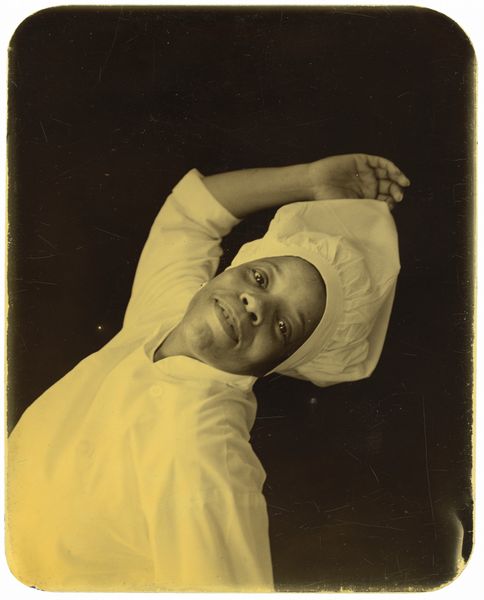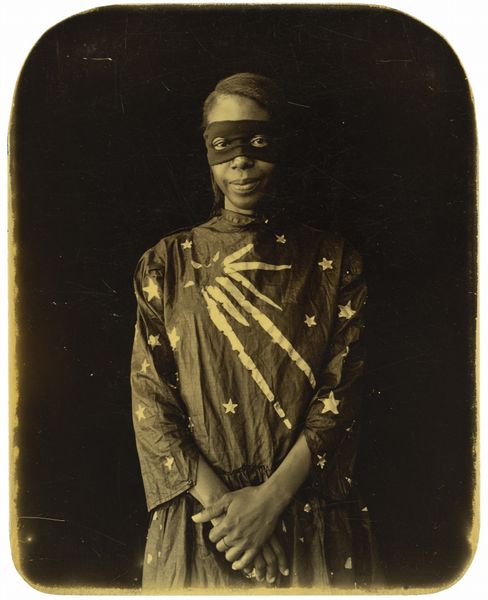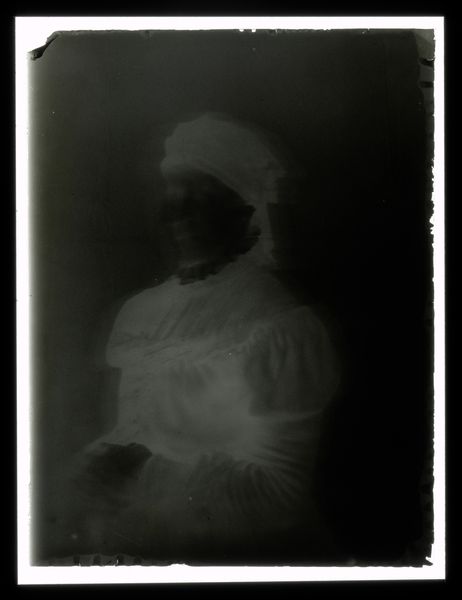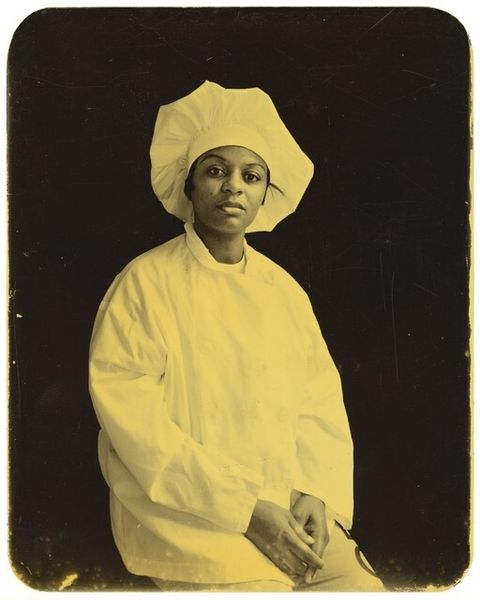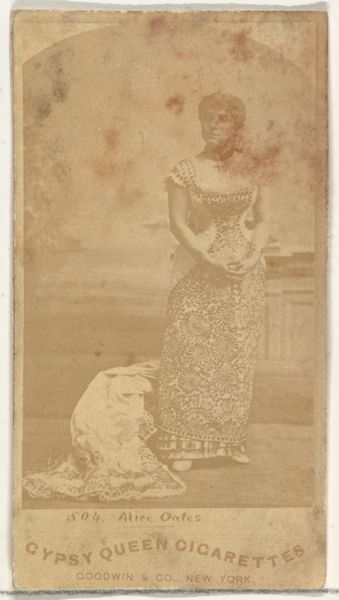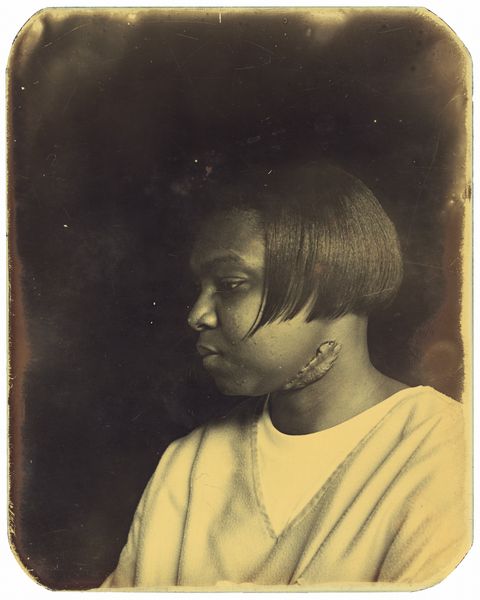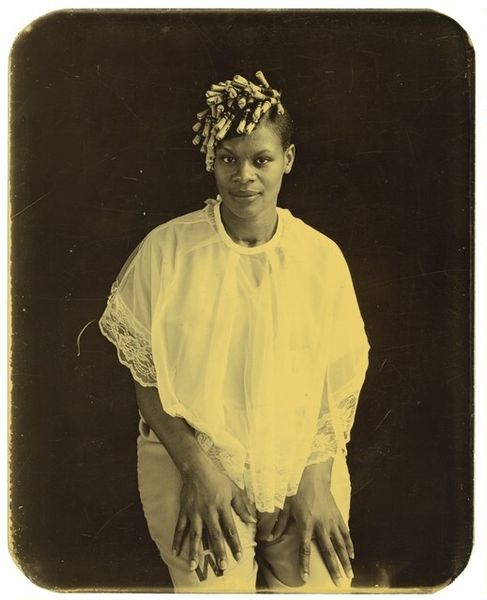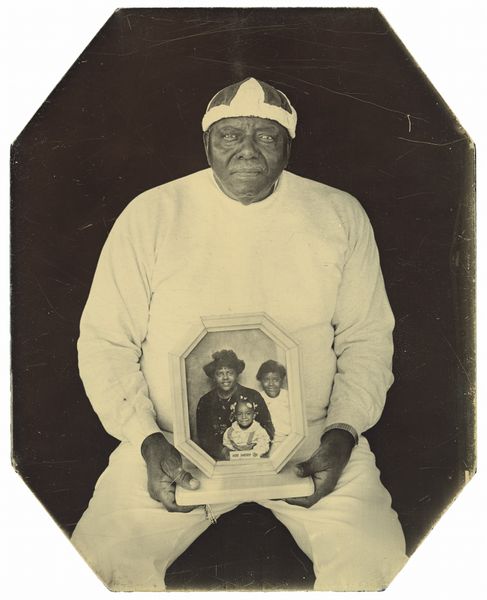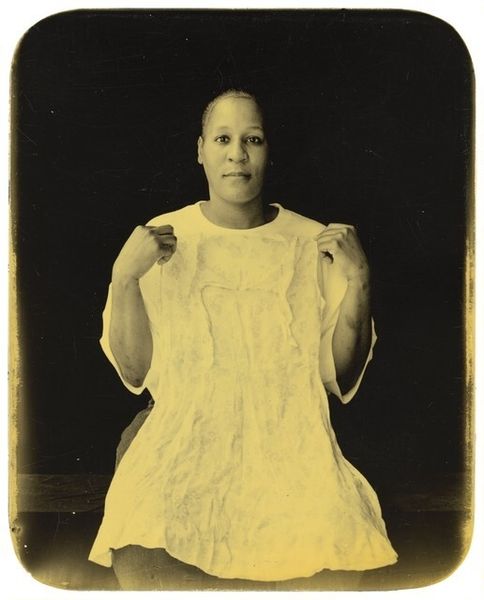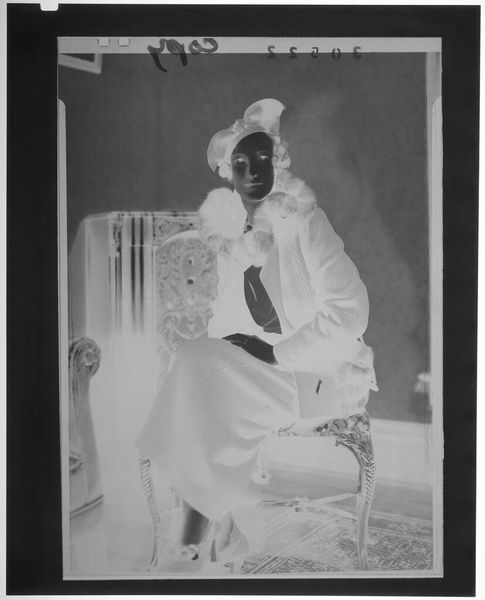
photography, gelatin-silver-print
#
portrait
#
african-art
#
portrait image
#
figuration
#
photography
#
gelatin-silver-print
Dimensions: image/plate: 12.7 × 10.2 cm (5 × 4 in.)
Copyright: National Gallery of Art: CC0 1.0
Deborah Luster made this photograph in St. Gabriel, Louisiana, using the 19th-century process of tintype photography. In this process, a photograph is created as a direct positive on a thin sheet of metal, typically iron, that is blackened by paint, lacquer, or another dark coating. The tintype was a popular and accessible form of photography, especially during the American Civil War, because it was inexpensive and produced immediate results. It democratized image-making, making it available to a wider range of people. Luster’s choice of this technique lends a spectral quality to the image, while referencing a history of portraiture linked to documentation and remembrance. The tintype's material qualities – its reflective surface and unique imperfections – further enhance the photograph's evocative power. By using this historical process, Luster connects the depicted subject to a broader narrative of representation, labor, and social identity, while also questioning our contemporary relationship to photography and image-making.
Comments
No comments
Be the first to comment and join the conversation on the ultimate creative platform.
